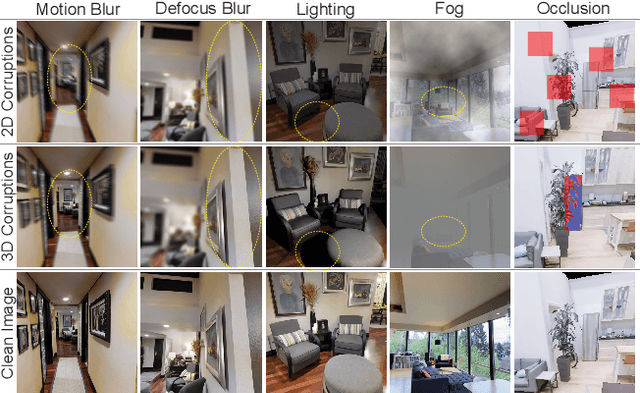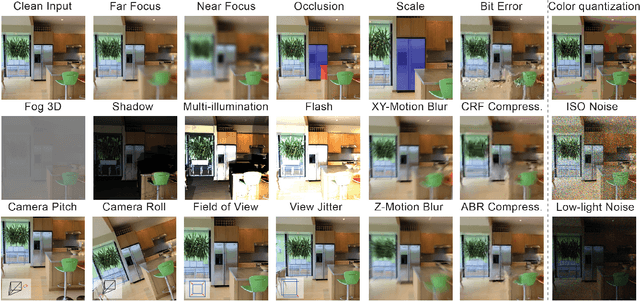3D Common Corruptions and Data Augmentation
Paper and Code
Apr 04, 2022



We introduce a set of image transformations that can be used as corruptions to evaluate the robustness of models as well as data augmentation mechanisms for training neural networks. The primary distinction of the proposed transformations is that, unlike existing approaches such as Common Corruptions, the geometry of the scene is incorporated in the transformations -- thus leading to corruptions that are more likely to occur in the real world. We also introduce a set of semantic corruptions (e.g. natural object occlusions). We show these transformations are `efficient' (can be computed on-the-fly), `extendable' (can be applied on most image datasets), expose vulnerability of existing models, and can effectively make models more robust when employed as `3D data augmentation' mechanisms. The evaluations on several tasks and datasets suggest incorporating 3D information into benchmarking and training opens up a promising direction for robustness research.
 Add to Chrome
Add to Chrome Add to Firefox
Add to Firefox Add to Edge
Add to Edge